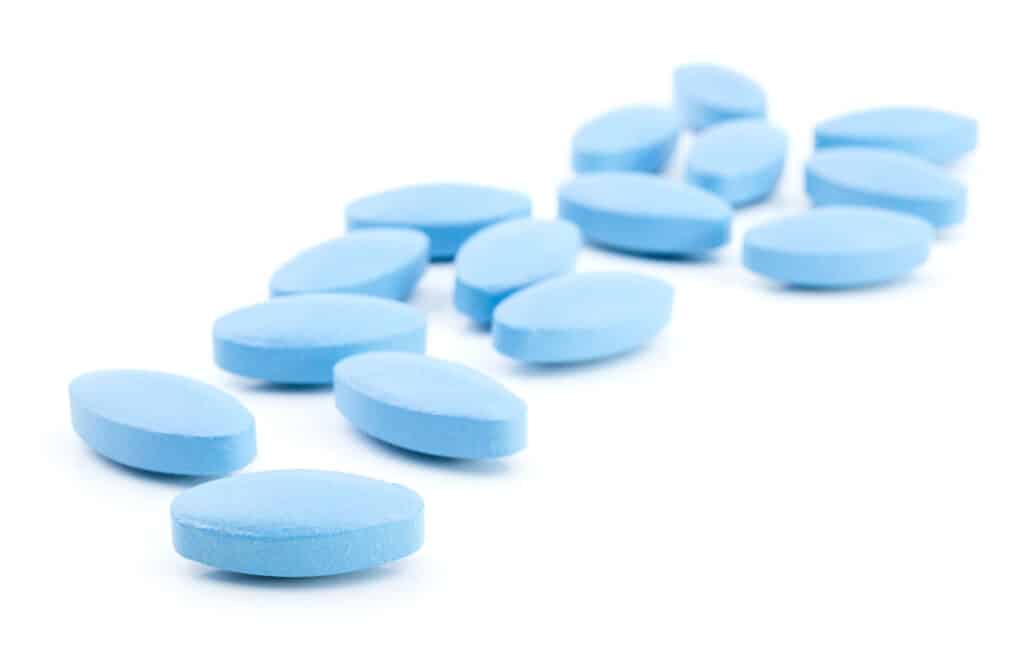Triazolam (known better by its brand name Halcion) is a Schedule IV controlled substance and a prescription drug for treating sleeping problems. Triazolam also belongs to the class of benzodiazepines which include other common drugs like Xanax and Valium.
Additionally, all benzos are CNS (central nervous system) depressants. These drugs perform their job by binding GABA (a neurotransmitter) to its receptor. In Halcion’s case, it’s a short-acting drug that doctors prescribe for a short time—no more than 2 weeks.
That’s because medical professionals understand that physical dependence is highly likely. In this post, you’ll learn more about how the use of Halcion can lead to drug abuse and how our team at Long Island Treatment Center can help you or a loved one battle Halcion addiction.
Table of Contents
Halcion (Triazolam): A Brief Overview
Halcion is an FDA-approved prescription medication used to treat insomnia and other sleep disorders in the short term. If you face trouble falling asleep, staying asleep, or feeling well-rested after a night’s sleep, your doctor will prescribe this benzo drug.

Triazolam usually takes 15 to 30 minutes to take effect and typically has a short half-life of only 1.5 to 2 hours. Side effects of Halcion use can include the following:
- Drowsiness, confusion, lethargy, and dizziness
- Memory problems (like memory loss and slowed brain activity)
- Rapid heart rate
- Irritability, nervousness, and heightened daytime anxiety
- Mood changes
- Dry mouth
- Mild euphoria
Note: Stopping the medication suddenly might cause rebound insomnia in which falling asleep becomes harder for 1 or 2 days. It should subside over time though.
Side Effects of Halcion Abuse
Substance abuse is a serious problem that can lead to life-threatening situations. If you suspect a loved one is taking higher doses of Halcion or is fighting cravings for the drug, it’s important to understand the signs and side effects of Halcion abuse. Even if Halcion is a short-acting drug, long-term use of it can wreak havoc on the user’s body.
Physical Signs of Halcion Addiction
Let’s take a look at what long-term drug use of Halcion manifests:
- Abnormal thoughts
- Slurred speech
- Shallow and slow breathing
- Dilated pupils
- Nausea and vomiting
- Lack of motor coordination
Psychological Signs of Halcion Addiction
Substance use disorders also affect the Halcion abuser’s mental state. Be on the lookout for these signs:
- Isolation
- Not participating in hobbies and activities
- Doctor shopping to require more of the drug
- Constantly attempting to quit and failing
- Inability to remember doing tasks (getting dressed, going to work…etc.)
- Feeling zombie-fied and dead on the inside
- Detaching and dissociating from reality
Further, those addicted to Halcion will prioritize taking and obtaining the drug over important obligations, like family and work. To avoid the chances of a Halcion overdose, make sure to address your Halcion addiction as soon as possible.

Symptoms of Halcion Withdrawal
Halcion withdrawal symptoms are life-threatening and oftentimes fatal. Quitting cold turkey is not the way to go and you definitely shouldn’t go through withdrawal without medical assistance.
Typically, the professional medical advice is to approach Halcion withdrawal using the tapering-down method. Doctors will prescribe other benzodiazepines that are less potent than Triazolam. These benzos will help counteract the effects of withdrawal.
That said, withdrawal symptoms for Halcion can include:
- Sweating accompanied by fever
- Hallucinations or delusions
- Loss of appetite and weight
- Seizures or uncontrollable shaking
- Nausea
- Muscle cramps
- Headaches
- Elevated levels of anxiety and depression
- Increased heart rate
- Insomnia
Note: How severe the withdrawal symptoms are will depend on how much of the drug the user has been taking as well as how frequently. Whether they mixed Halcion with other drugs (like alcohol or opioids) plays a factor too. The patient’s medical history and mental health are also taken into account.

Treatment Options for Halcion Addiction
The first step to addiction treatment is admitting there’s a problem that needs medical intervention. Consulting a medical professional will help you pick a treatment plan that’s best suited for dealing with your Halcion addiction.
Here are the treatment programs you can expect to go through when checking into a treatment center:
1. Medical Detox
Detoxification, much like withdrawal, can be a strenuous process for the patient addicted to Halcion. As such, the treatment provider has to be hands-on and closely monitor the patient for any life-threatening symptoms.
However, detox is necessary when suffering from a Halcion addiction. Under medical supervision, the staff is present while the drug gradually leaves your system. They might prescribe long-acting benzos, such as Klonopin and Valium, to battle the cravings for Halcion.
Detox is hard and complications may arise during the process. There’s significantly less risk of harm with physicians around as they specialize in withdrawal management. You won’t have to worry about the potential for seizing or relapsing.
2. Inpatient Treatment
Hospitalization and inpatient treatment are often required for severe cases of Halcion addiction. Patients who qualify suffer from an extreme physical dependence on the drug and thus must be admitted for their own safety.
With inpatient care, patients can learn to control their cravings and drug abuse in a safe, monitored environment that’s tailored to their well-being. It’s also an excellent treatment program for those dealing with trauma and serious ailments.
Being well-structured, inpatient treatment helps stabilize patients and prevent their exposure to triggers or negative influences that lead to their Halcion abuse. An inpatient program can rebuild a patient’s life and show patients that they can develop strategies to avoid using again.
3. Outpatient Treatment
Outpatient treatment, on the other hand, is recommended for those suffering from mild Halcion addictions. It’s also a suitable program for patients who have other obligations they can’t walk away from, including work, family, and kids.
Those transitioning from inpatient care benefit from outpatient programs as well since their counselors never leave them. They’re still there to help them navigate their sober lives outside the treatment center and cautiously settle back into society.
As such, outpatient treatment plans are more flexible, allowing patients to resume their lives while they deal with their substance abuse disorder. Patients can either attend daytime or evening sessions, depending on their schedule. Treatment providers, however, are the ones who decide how intensive the program should be.
4. Therapy
Therapy for addiction recovery is a vital step in recovering from short or long-term Halcion abuse. Therapy educates patients on the nuances of their addiction; what triggers it, how they can cope with cravings, and how to avoid relapse.
The following are just some therapies a medical staff might consider for Halcion addiction treatment:

Cognitive Behavioral Therapy (CBT)
Many addiction counselors use CBT as part of individual or group therapy to help patients understand their addictive behavior better. Therapists work with patients to trace their thought processes and triggers behind their addiction. Together, patients learn to develop coping mechanisms to better handle those triggers before they push them to relapse.
Group Therapy
Group therapy can be beneficial for those struggling to overcome their Halcion addiction. Talking to others about it and seeing that they’re not alone in their struggle, puts patients in a better mental state. This way, they’re more open to treatment care and know that they’ll be okay.
Dual Diagnosis Therapy
More often than not, substance abusers have underlying mental health conditions that make their disorder worse. Dual diagnosis therapy can work on both the patient’s mental health issues and Halcion addiction.
Halcion Addiction Treatment Near You
Recognized for excellence in substance abuse and behavioral health treatment by the Joint Commission, our medical staff at Long Island Treatment Center has the qualifications necessary to help you or a loved one through your recovery journey from Halcion addiction.
Contact us today for more information on our treatment plans and providers. If you need immediate help, call us on our confidential hotline.

